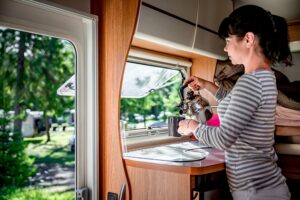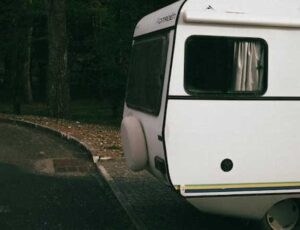Introduction
Brief overview of the issue of caravan pipes freezing.
Caravan water pipes are a crucial component of the mobile home’s plumbing system, ensuring a steady supply of water for various needs. However, during colder months, these pipes are susceptible to freezing, leading to potential damage and inconvenience.
Why it’s essential to prevent this from happening.
When caravan water pipes freeze, they can burst, leading to costly repairs and water damage. Furthermore, a frozen pipe can disrupt the water supply, making the caravan uninhabitable. Learning how to stop static caravan pipes from freezing is not just about preventing damage; it’s about ensuring the comfort and safety of those living in the caravan.
Understanding the Caravan Plumbing System
Basic components of a caravan’s plumbing system.
The plumbing system of a caravan comprises various components, including the water tank, pipes, faucets, and drainage system. Caravan water pipes, in particular, are designed to be lightweight and flexible, making them more susceptible to freezing compared to traditional household pipes.
Which parts are most susceptible to freezing.
While the entire plumbing system can be vulnerable to cold temperatures, the caravan water pipes, especially those located on the exterior or unheated sections of the caravan, are most at risk. Understanding where these vulnerable points are is the first step in learning how to stop static caravan pipes from freezing.
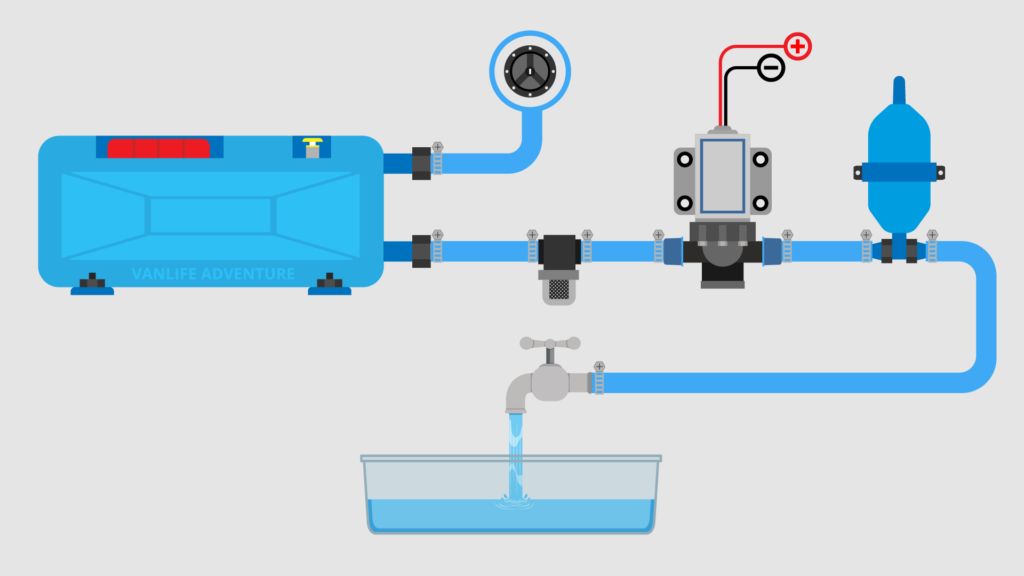
The Science Behind Frozen Pipes
How and why pipes freeze.
Caravan water pipes freeze when the water inside them turns to ice due to prolonged exposure to freezing temperatures. As water freezes, it expands, exerting pressure on the pipe walls. This expansion can lead to cracks or even cause the pipe to burst.
The potential damage caused by frozen pipes.
Frozen caravan water pipes can lead to a myriad of problems. The immediate concern is the lack of water flow, but the more significant issue arises when the ice inside the pipes melts. This can result in leaks, water damage to the caravan’s interior, and even structural damage if not addressed promptly.
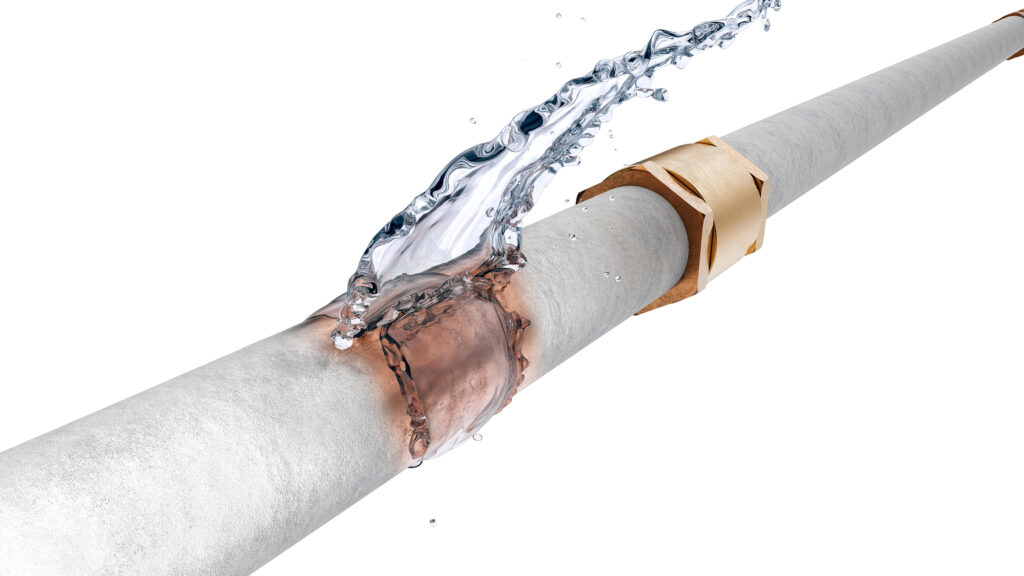
Insulation Techniques
Proper insulation materials for caravan pipes.
Insulating caravan water pipes is a proactive measure to prevent them from freezing. Materials like foam pipe insulation, insulating tape, and reflective foil insulation are commonly used. These materials act as a barrier, reducing the rate at which heat escapes from the pipes, thus keeping them warmer for longer.
How to correctly insulate pipes to prevent freezing.
To effectively stop static caravan pipes from freezing, start by identifying the most exposed and vulnerable sections of the piping. Wrap these sections with your chosen insulation material, ensuring there are no gaps. Secure the insulation with tape or ties, and regularly check for wear and tear, replacing the insulation as needed.
Pipe Heating Solutions
Electric pipe heating cables and tapes.
Electric pipe heating solutions, such as heating cables and tapes, are designed to provide direct warmth to caravan water pipes. These devices can be wrapped around the pipes or run alongside them. When powered on, they emit heat, preventing the water inside from freezing.
How to safely use and install them.
Safety is paramount when using electric heating solutions. Ensure that the cables or tapes are specifically designed for caravan water pipes and follow the manufacturer’s instructions closely. Keep them away from flammable materials, and always check for any signs of wear or damage before use. Using a thermostat in conjunction with these devices can help maintain a consistent temperature and reduce energy consumption.
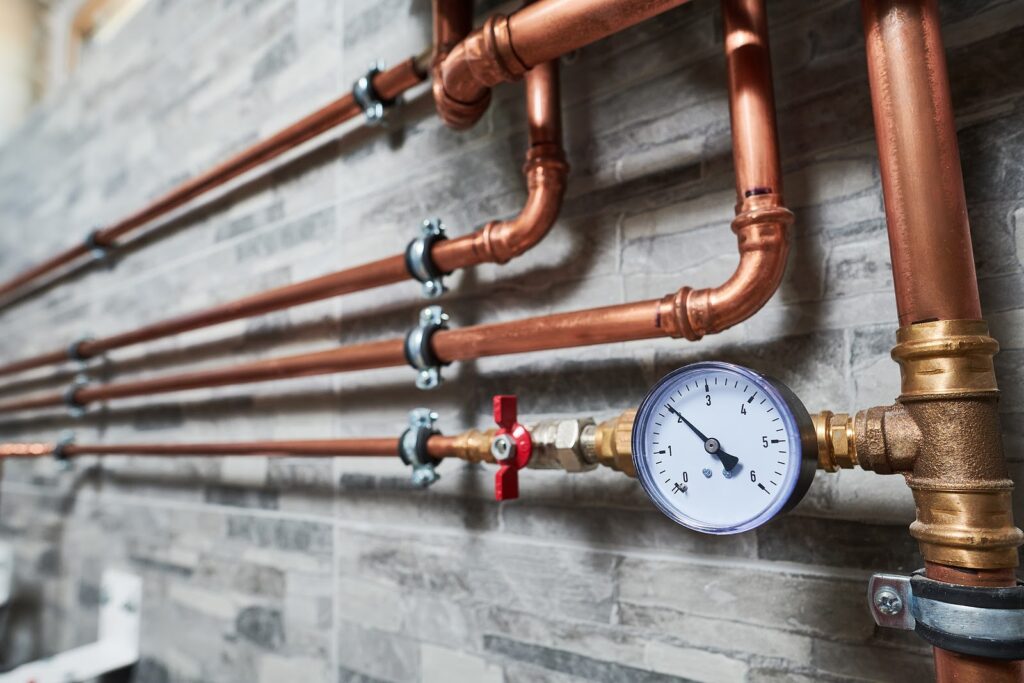
Draining the System
When and how to drain your caravan’s plumbing system.
Before the onset of freezing temperatures, one effective method to prevent damage to caravan water pipes is to drain the entire system. By ensuring no water remains in the pipes, you eliminate the risk of freezing and expansion. To do this, turn off the main water supply, open all faucets, and use the caravan’s drainage points to empty the system.
Benefits of draining before cold weather hits.
Draining the plumbing system of your static caravan can save you from potential costly repairs. Without water in the pipes, there’s no risk of freezing or bursting. Moreover, this method is a cost-effective way to safeguard your caravan, especially if you don’t plan to use it during the colder months. It’s a simple yet crucial step in understanding how to stop static caravan pipes from freezing.
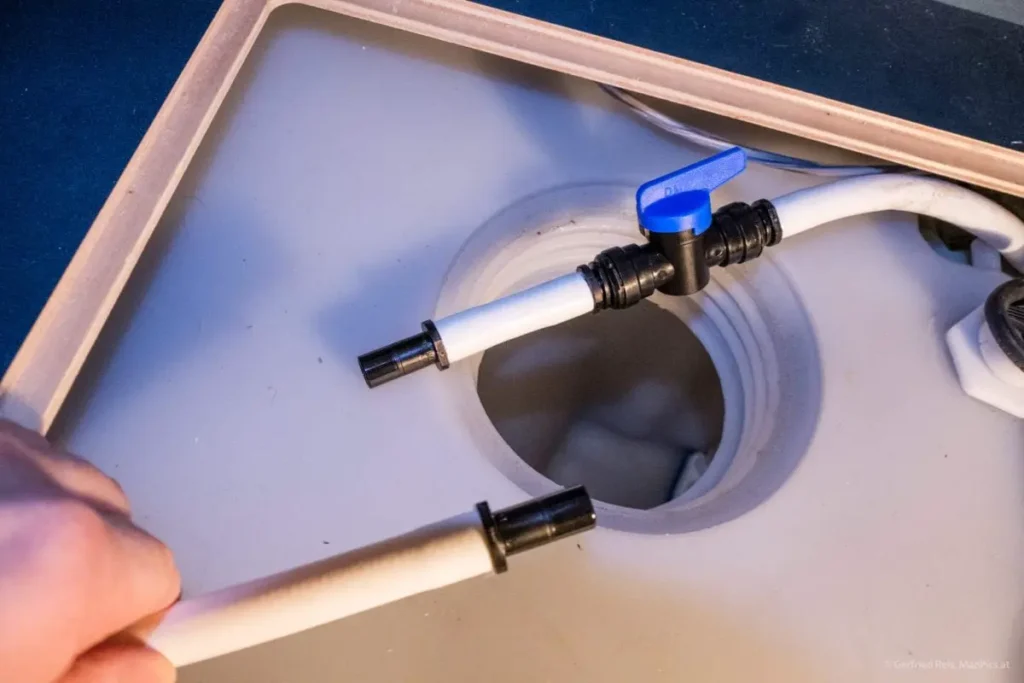
Using Antifreeze
Types of antifreeze suitable for caravans.
Antifreeze is commonly used in vehicles to prevent freezing, and it can also be applied to caravan water pipes. However, it’s essential to choose a non-toxic antifreeze designed for potable water systems. Propylene glycol-based antifreezes are generally safe for caravan plumbing systems.
How to safely use antifreeze in your plumbing system.
To use antifreeze in your caravan’s plumbing system, first, drain all the water. Then, pour the recommended amount of antifreeze into the system, ensuring it reaches all sections of the pipes. Always follow the manufacturer’s guidelines for the correct quantity and procedure. Remember to flush the system thoroughly before using the water for drinking or cooking, ensuring no antifreeze residue remains.
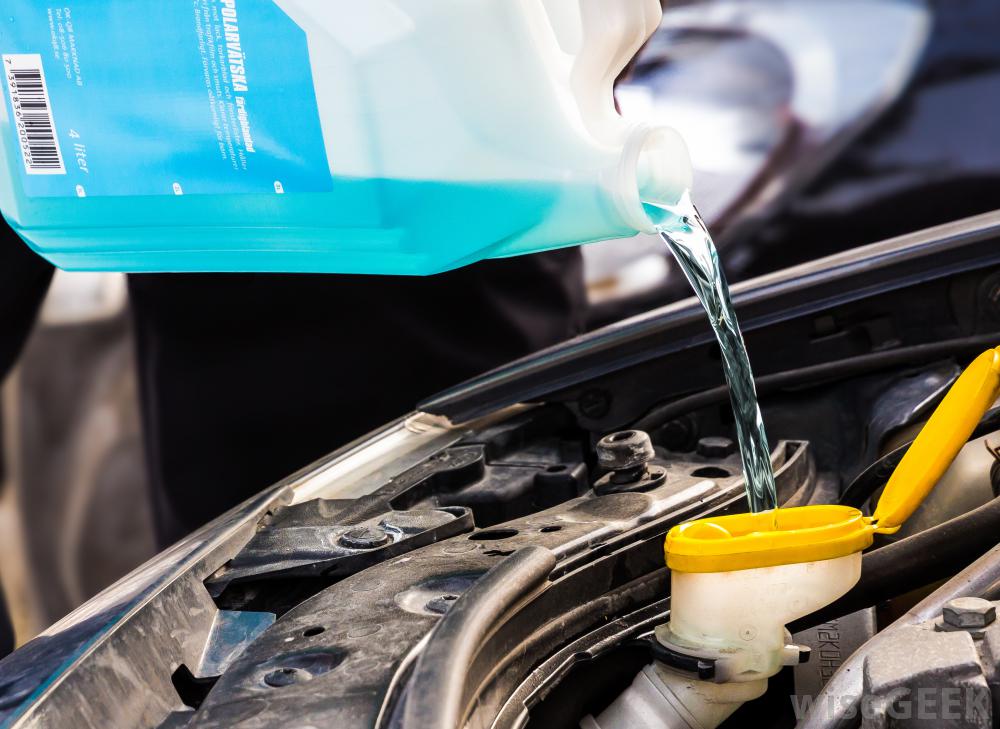
Regular Maintenance and Checks
Routine checks to ensure pipes are in good condition.
Regular maintenance is crucial to ensure the longevity of caravan water pipes and to prevent freezing. Periodically inspect the pipes for signs of wear, damage, or potential weak points. Check the insulation and heating solutions to ensure they’re functioning correctly.
How often to perform these checks and what to look for.
For those keen on understanding how to stop static caravan pipes from freezing, it’s advisable to perform checks at the start and end of the colder seasons, and at least once during the winter. Look for signs of moisture, ice formation, or any visible damage to the pipes. Ensure that all protective measures, like insulation, are intact and in place.
Temperature Monitoring
Tools and gadgets to monitor the temperature of your caravan’s interior and plumbing.
With advancements in technology, there are now various tools available to monitor the temperature of your caravan’s interior and plumbing system. Digital thermometers, wireless temperature sensors, and smart home systems can provide real-time data and even send alerts when temperatures approach freezing.
How to set up alerts for potential freezing conditions.
To effectively stop static caravan pipes from freezing, set up your temperature monitoring tools in the most vulnerable areas. Connect them to a central system or mobile app that can send notifications when temperatures drop to concerning levels. This proactive approach allows you to take preventive measures before any freezing occurs.
Choosing the Right Parking Spot
How the location of your caravan can affect the likelihood of pipes freezing.
The location of your caravan can significantly influence the temperature of your caravan water pipes. Parking in shaded areas or spots exposed to cold winds can increase the risk of freezing. Conversely, spots that receive sunlight or are shielded from cold breezes can help keep the caravan warmer.
Tips for selecting a spot that minimizes exposure to cold.
When considering how to stop static caravan pipes from freezing, choose parking spots that receive ample sunlight during the day. Avoid areas with a lot of shade or those prone to pooling water. If possible, park your caravan with the plumbing side facing away from prevailing cold winds, offering an added layer of protection.
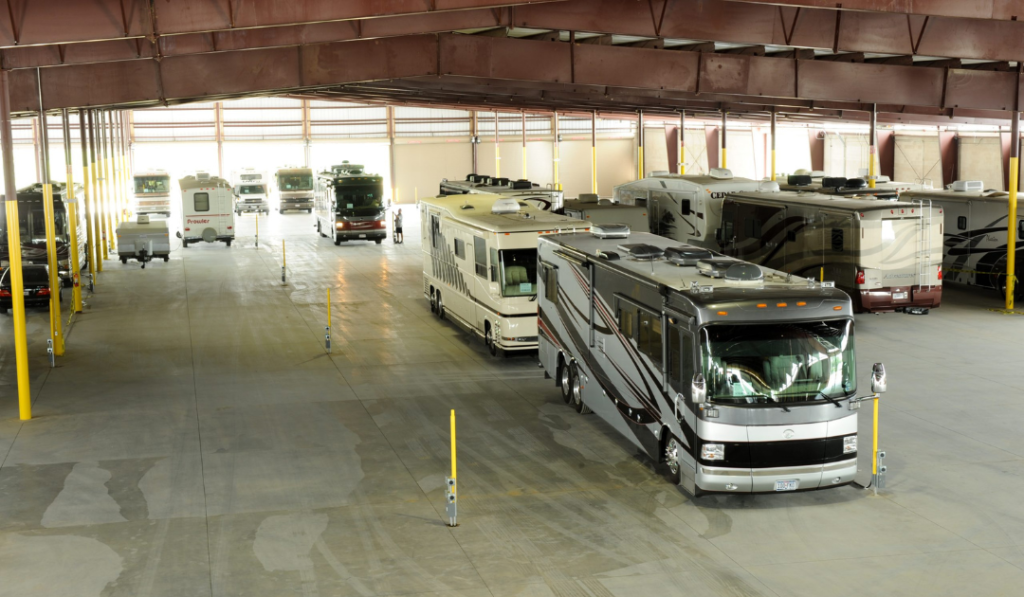
Conclusion
Protecting caravan water pipes from the harsh grip of winter is more than just a maintenance task; it’s a commitment to ensuring the longevity and functionality of your mobile home. As we’ve explored in this article, understanding how to stop static caravan pipes from freezing involves a combination of proactive measures, regular checks, and timely interventions. From insulating vulnerable sections to choosing the right parking spot, each step plays a pivotal role in safeguarding your caravan’s plumbing system. Regular maintenance checks, coupled with temperature monitoring, can act as your first line of defense against unforeseen freezing events. Moreover, in the event of extended cold spells, tools like antifreeze and heating solutions can be invaluable. As caravan enthusiasts, it’s our responsibility to ensure that our homes on wheels remain safe, functional, and ready for the next adventure, regardless of the season. By taking the time to implement the strategies discussed, you not only protect your investment but also ensure that your caravan remains a cozy and welcoming space, even in the coldest of climates.


